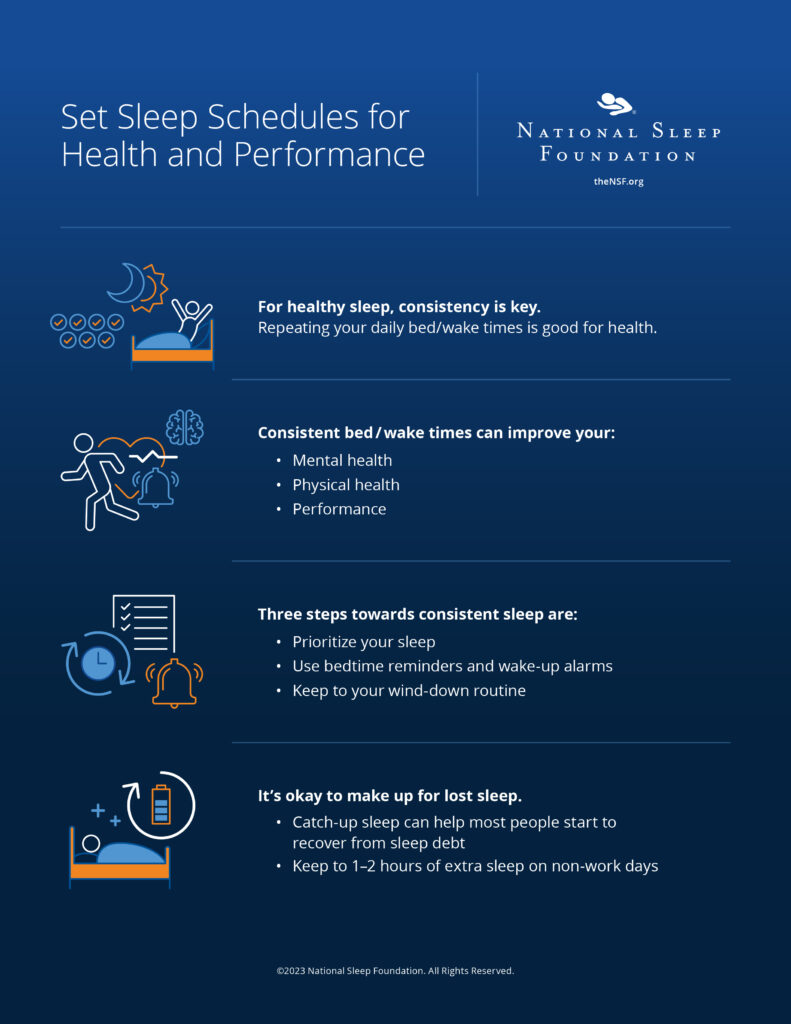Setting a Regular Sleep Schedule
You probably know it’s important to get enough sleep each night, but did you know having a consistent sleep schedule, or going to bed and waking up at the same time, is also important for your health and well-being?
Positive Effects of a Regular Sleep Schedule
Having a regular sleep schedule can positively affect key areas in your life including your mental and physical health as well as performance. Getting enough sleep from a regular sleep schedule can make it easier for you to cope with daily stress and less likely to be impacted by minor negative things that can come up. Other positive benefits of a regular sleep schedule include alertness, health and safety behaviors, and improved heart health.
How Do I Set a Sleep Schedule?
If those positive health effects sound good to you (and they should!), you might be asking how you can take steps to have a more consistent sleep schedule. We recommend three steps that can specifically help you set and stick with a sleep schedule.
Prioritize your sleep
Sleep tends to be the first thing that gets sacrificed when life gets busy with work, school, or family commitments. When you value your sleep, maintaining a consistent sleep schedule can come more easily. The first step is to understand the benefits of getting enough quality sleep. By prioritizing sleep in your life, you’re setting yourself up to get enough sleep to help feel great and be at your best.
Use bedtime reminders and wake-up alarms
When it gets closer to your normal bedtime, use a reminder that alerts you it’s time to start your personal routine to get ready for sleep. In the morning, a wake-up alarm can help you get your day started without the worry of oversleeping.
Keep to your wind-down routine
Looking for something to help you fall asleep easier? A wind-down routine is a simple plan to let your mind and body prepare for sleep every night. Each person’s approach is different but could include relaxing activities like reading a book, meditating, journaling, or listening to calming music before bed. Staying consistent night after night leads to the best results.
What If I’m Not Getting Enough Sleep?
Most adults need between 7-9 hours of quality sleep a night to feel their best the next day. Here’s a fact: if you know you need eight hours of sleep at night to function your best and you are only getting six hours, you are building a sleep debt. The good news is there’s something you can do to help pay off that sleep debt. We’ve learned that sleeping an extra 1-2 hours on the weekends or “non-work days,” or taking short naps (as your schedule allows) can help most people start to offset the sleep debt they built up during the week.
The take-home message is that following a consistent sleep schedule is important for overall health and wellness in the long run. If you need to make up for lost sleep, sleeping in a little on the weekends is one way to help you get enough of the quality sleep you need to be your Best Slept Self®.
Click to Download the Sleep Schedule Graphic

